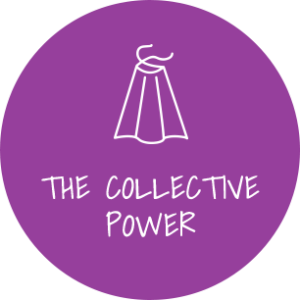
Pregnancy and medicine
The issue The decision to have a child isn’t always an easy one and can be even harder if there […]
FINDING INFORMATION
about Pregnancy and Safe Motherhood

Pregnant women must be able to access the information they need for a safe and healthy pregnancy experience. Being able to access high quality and appropriate information is essential for parents to make informed decisions. Our recent survey on perceptions of pregnancy across 7 countries in Europe showed that about one in four women sampled did not perceive that they had the appropriate information and support immediately before and after giving birth. The same proportion felt that they did not understand how to navigate the care associated with their pregnancy, particularly in terms of being able to identify or avoid complications. This lack of information is concerning, especially in the internet era where the expectation is that information can be accessed instantly.

This page provides guidance on where to find information on some key topics related to the pregnancy and motherhood experience, including work and pregnancy, pregnancy and medicine, maternal care for vulnerable groups, pregnancy planning and family planning. Some other potential sources of information could include the local government health website, as it may have a dedicated section for pregnant women and families, your health insurance provider, or local charities dedicated to specific issues you are seeking information on. If you have suggestions on what sources to include, or if there are other topics that you struggle to find information on, please contact us with your feedback.
It’s worthwhile to take the time to learn about your maternal rights at work. In the EU, as in most other countries, there are rules protecting the health and safety of pregnant women, women who have recently given birth, and women who are breastfeeding. There are also clear rules on maternity leave and to avoid discrimination in the workplace.
It’s also a good idea to learn about specific protection and rights that may apply to you and your partner in your country, as there may be local variation in how these rules are enforced. To learn more about your rights at work and parental leave, read our toolkit on Work and Pregnancy.
Sources: https://ec.europa.eu/justice/gender-equality/rights/work-life-balance/index_en.htm
https://www.nibusinessinfo.co.uk/content/eu-laws-maternity-rights-and-parental-leave
The decision to have a child isn’t always an easy one and can be even harder if there is a disease or illness involved. Despite the major advances in medical science, we are still lacking proper data and approximately 90% of pregnant women take medicine without knowing the consequences.
Currently, information on pregnancy and medicine is not easily available, leaving potential future parents to make an impossible choice: Should a woman with a potentially serious medical condition take medication without knowing how it might impact her child? Or should she forego treatment during pregnancy, perhaps endangering her own health as well as the health of her child?
If you are currently pregnant, breastfeeding or planning a family, the best person to speak to is your doctor. To learn more about the topic of pregnancy and medicine, for examples of questions to ask your doctor, and to see a list of websites that might help answer your questions on taking medicines during pregnancy, read our toolkit on Pregnancy and Medicine.
Sources: https://www.pregnancyandmedicine.org
https://www.nhs.uk/conditions/pregnancy-and-baby/pages/medicines-in-pregnancy.aspx
All mothers and their children have the right to access the same high quality of care regardless of their background, whether it be their nationality, race or ethnic group, age, disability status, or immigrant status. However, the standard and quality of care today varies significantly across countries and regions, and maternal rights are not always acknowledged to the same extent.
Maternal mortality in Europe is less of an issue than in the developing countries. But even in Europe, too many women die during pregnancy and/or childbirth, and there are significant differences in mortality rates between countries. Currently, a very large number of people are seeking refuge and/or asylum, including an ever-increasing proportion of pregnant women and infants in need of health services, and it is important that we ensure they receive the appropriate care. Women and parents of minority groups who are not refugees or migrants may share these challenges.
Equally, women and parents with disabilities face particular challenges during pregnancy. Parents express frustration at a lack of information, lack of continuity of care and not feeling that their individual needs are fully understood and addressed by healthcare providers.
For more information on this topic, including the specific challenges refugees and migrant women face, and practical sources of information for parents with disabilities, read our toolkit on maternal care and vulnerable groups.
Sources: https://www.unhcr.org/protection/operations/569f8f419/initial-assessment-report-protection-risks-women-girls-european-refugee.html
https://www.europeristat.com/
https://www.theguardian.com/society/2010/nov/23/challenges-disability-pregnancy
https://disabledparent.org.uk/
Preconception health and health care focus on things you can do before and between pregnancies to increase the chances of having a healthy baby. There are important steps to help future parents get ready for the healthiest pregnancy possible, including seeing a doctor to discuss pre-existing medical conditions, medications you are currently taking, your lifestyle, and preparing your health for the best possible pregnancy experience for yourself and your baby.
Family planning allows people to attain their desired number of children and determine the spacing of pregnancies. It is achieved through use of contraceptive methods and the treatment of infertility. A woman’s ability to choose if and when to become pregnant has a direct impact on her health and well-being, and therefore has a strong positive impact on society. Family planning allows spacing of pregnancies and can delay pregnancies in young women at increased risk of health problems and death from early childbearing. It prevents unintended pregnancies, including those of older women who face increased risks related to pregnancy. Family planning enables women who wish to limit the size of their families to do so. Evidence suggests that women who have more than 4 children are at increased risk of maternal mortality.
By reducing rates of unintended pregnancies, family planning also reduces the need for unsafe abortion.
Speak to your doctor if you are planning a pregnancy or want to discuss your family planning options. For more information you can visit: Planning your Pregnancy - NHS (U.K.), Preconception Health and HealthCare by the Center for Disease Control (U.S.), WHO factsheet on family planning/contraception, your local family planning association.
Sources: https://www.cdc.gov/preconception/planning.html
https://who.int/mediacentre/factsheets/fs351/en/
We welcome your questions and ideas. Should you like to suggest any other useful resources , please don't hesitate to write to us a short note on the Tell your Story page.

The Pregnancy and Medicine Initiative is an independent, nonprofit organization that aims to raise awareness and help address the information vacuum concerning the use of medicines and medical treatment in pregnancy.

The Alliance for Maternal Health Equality brings together a core group of partnering EU, national and international level public, private and civil society organisations as well as policy makers and healthcare professionals, in order to raise the issue of maternal health and permanently place it on the map of Europe.

The issue The decision to have a child isn’t always an easy one and can be even harder if there […]

Know your rights It’s worthwhile to take the time to learn about your maternal rights at work. In the EU, […]

Maternal mortality in Europe is less of an issue than in the developing countries. But even in Europe, too many […]